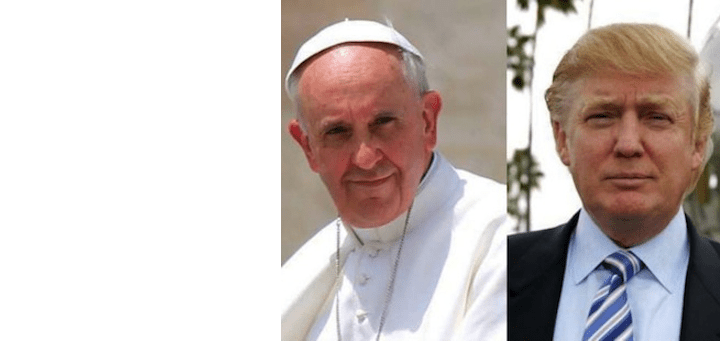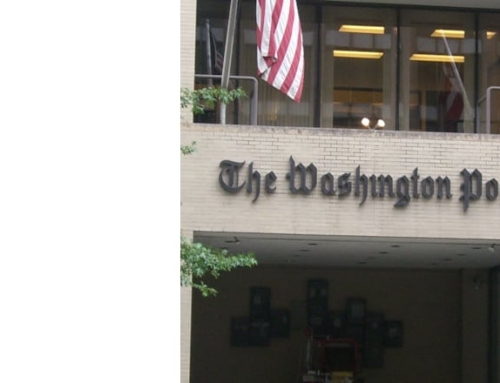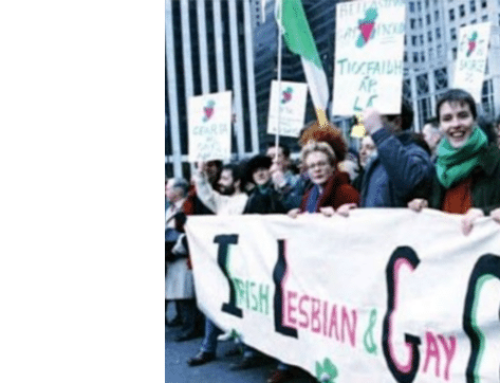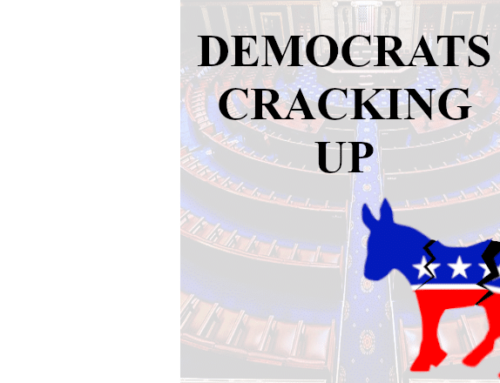Bill Donohue comments on the upcoming meeting between Pope Francis and President Trump:
“The Two Have Clashed in the Past.” That is how Time is characterizing next week’s meeting between Pope Francis and President Trump. The New Yorker is more dramatic, saying, “Pope Francis is the Anti-Trump.” Huffington Post is typically irresponsible: “Trump and Pope Francis Will Finally Meet After a Year of Ideological Sparring.”
The spin masters in the mainstream media, almost all of whom like the pope and hate the president, are in high gear promoting the message that there is a real divide between the two men.
There is no denying that on climate change, refugees, and immigration, there are differences between Pope Francis and President Trump.
Regarding climate change, it is important to note that there is no Catholic teaching on this subject. To be sure, the Church is committed to protecting the environment, but, as with many other issues, there is no defined position on how best to achieve it.
So if the pope thinks global warming is real, and is caused mostly by human activity, and the president is skeptical, believing that environmental regulations have become too rigid, this is simply a matter of opinion.
The pope and the president have each expressed their outrage at Christian persecution, particularly in the Middle East. The pope calls on all nations to resettle refugees; the president believes that those nations in the area which are receptive to resettling them are best suited to do so. Both positions are eminently defensible.
Their different approaches to immigration have been subjected to much media hype. In February 2016, news stories abounded claiming that Pope Francis said, “Trump is Not Christian.” This was a classic example of fake news. Here is what happened.
A reporter from Reuters told the pope aboard the papal plane that Trump “wants to deport 11 million illegal immigrants, thus separating families.” This was not true. On August 16, 2015, when Chuck Todd explicitly asked Trump about this on “Meet the Press,” the Republican candidate for president said, “Chuck—no, no. No, we’re going to keep the families together. We have to keep the families together.”
After misrepresenting what Trump said, the reporter asked the pope “if an American Catholic can vote for someone like this.” The pope demurred, but that is not the real issue. Whatever happened to separation of church and state? More important, was it now acceptable for Catholics to vote the way the pope tells them to?
The pope handled himself well, and when asked about Trump’s bid to build a wall, the Holy Father offered a more nuanced answer than the media reported. “A person who thinks only about building walls…is not Christian.” (My italic.) He added that “I say only that this man is not Christian if he has said things like that…and in this I give the benefit of the doubt.” (My emphasis.)
Vatican spokesman Father Federico Lombardi stressed that the pope’s remark about “not a Christian” was based largely on “what he was told.”
Trump’s initial reaction to what the pope said was based on false media reports, which explains why he said it was “disgraceful” for a religious leader to question someone’s faith.
After learning what the pope actually said, Trump commented, “I think it was probably a little bit nicer statement than was reported by you folks in the media because after I read it [it] was a little bit softer.” He then turned up the heat. “I would say that I think he [the pope] was very much misinterpreted, and I also think he was given false information.”
Predictably, the media are downplaying those issues where the pope and the president agree, namely on abortion and marriage. Unlike climate change, these issues are the subject of major Catholic teachings; they are not a matter of opinion. Both men are resolutely pro-life, committed to strengthening the rights of the unborn. And both believe that marriage is a union between a man and a woman, not two people of the same sex.
They also find common ground in their support for religious liberty. There is a great confluence of thought between the pope and the president on the right of churches and affiliated entities to conduct their business without the government meddling in their affairs.
It must also be said that if the media are going to compare various positions of Pope Francis and President Trump, fairness dictates that it examine how the pope matched up with Trump’s predecessor. That will be the focus on my next article.








